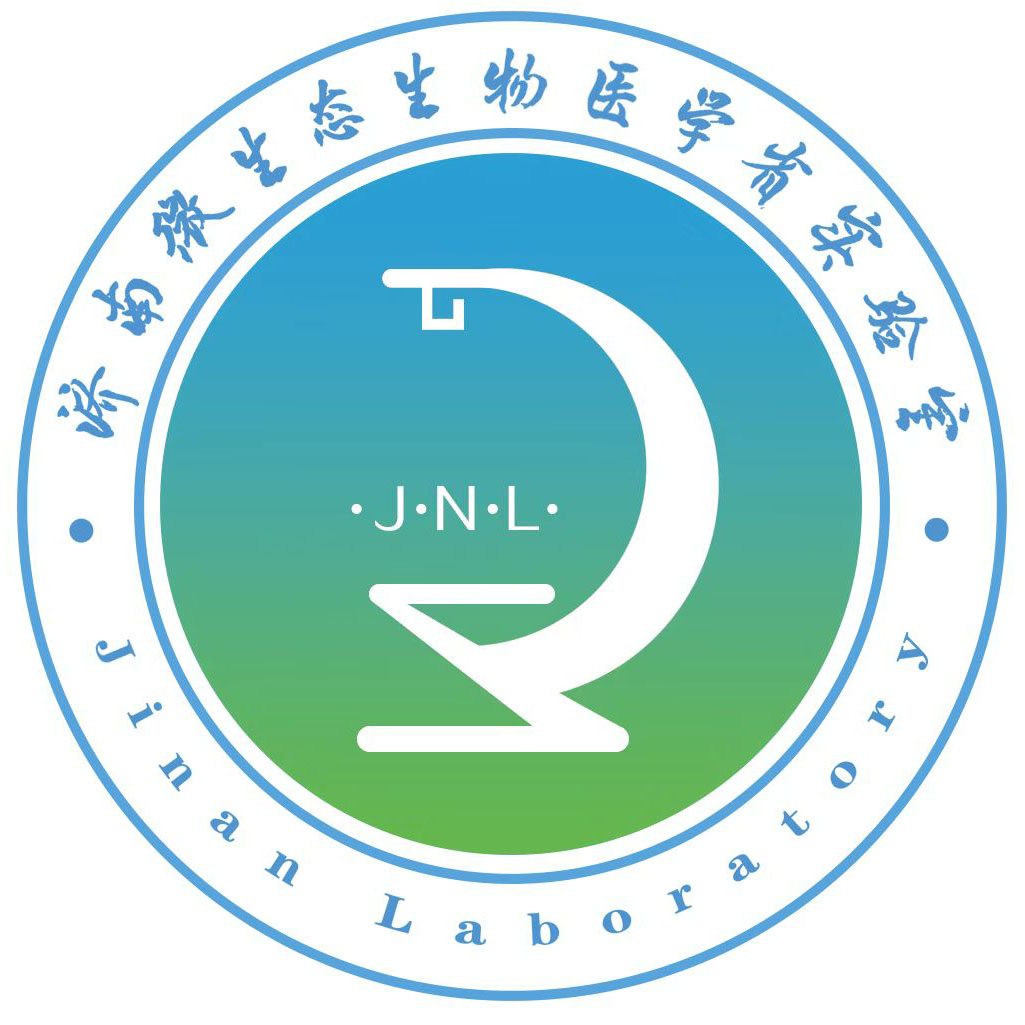On 4 July, the Jinan Microecological Biomedicine Shandong Laboratory successfully hosted the first ‘Micro-Giant Force’ Academic Forum of 2025. The forum was conducted in a hybrid online and offline format, attracting over 60 research backbone members. Deputy Director Wu Nanping attended the event, while Deputy Director Xiao Yonghong, Principal Investigators (PIs) Lyu Longxian and Chen Yunbo, and Assistant Researcher Wu Xiaogang delivered academic presentations.
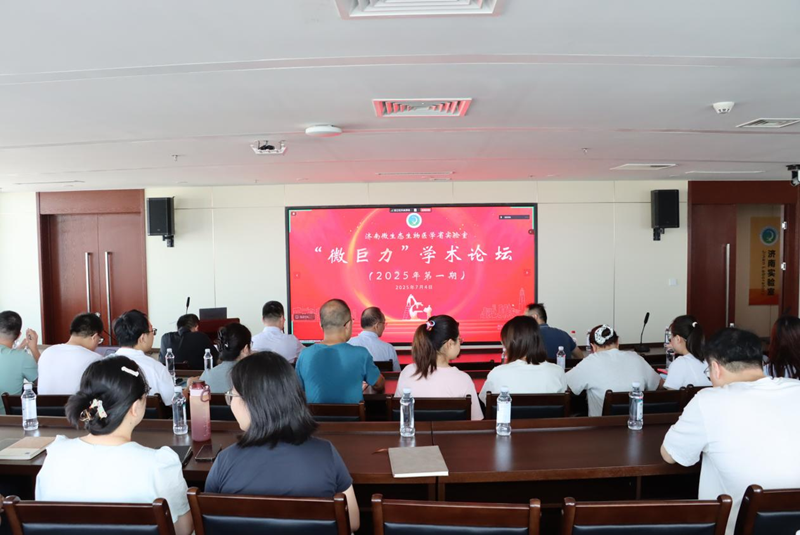
Professor Xiao Yonghong first presented a report titled ‘Non-traditional Antimicrobial Agents for Resistant Bacterial Infections,’ comprehensively outlining the hazards of antimicrobial resistance and the challenges faced by current antibiotic treatments. He compared and contrasted the research and development approaches for non-traditional antimicrobial agents such as antibodies, antimicrobial peptides, microbiome-based formulations, and bacteriophages, as well as biological treatment strategies for resistant bacterial infections.
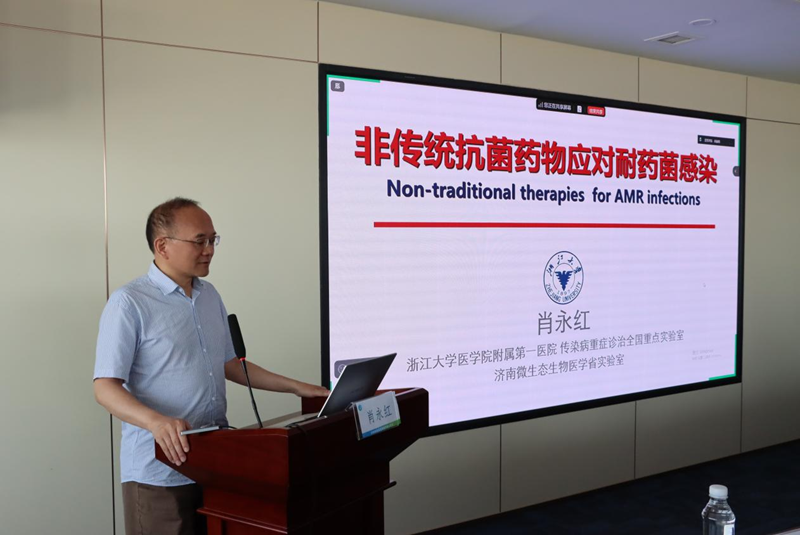
Professor Lv Longxian shared insights on ‘Progress in Microbiome Research on Primary Biliary Cholangitis,’ providing a detailed analysis of the evolutionary patterns of the digestive tract microbiome in patients with primary biliary cholangitis (PBC) and exploring the mechanisms by which the intestinal microbiome influences PBC, thereby offering important theoretical foundations and innovative approaches for PBC treatment.
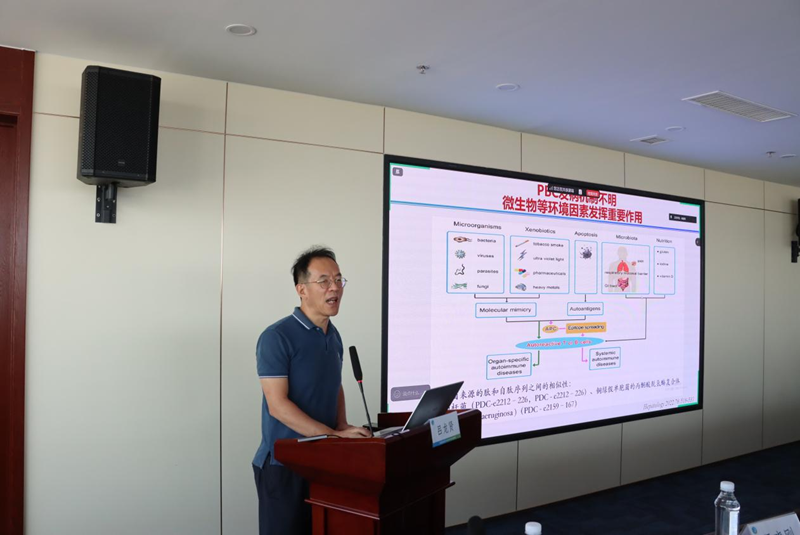
Professor Chen Yunbo delivered an online report titled ‘Machine Learning-Driven Antimicrobial Resistance Revolution: From Genetic Fingerprint Prediction to Antimicrobial Substance Discovery’ addressing the global issue of antimicrobial resistance. Based on literature analysis, Professor Chen outlined the high application potential of artificial intelligence in the screening of antimicrobial peptides, antimicrobial resistance gene screening, clinical rapid diagnosis, and the development of novel antimicrobial substances, injecting new vitality into antimicrobial resistance research.
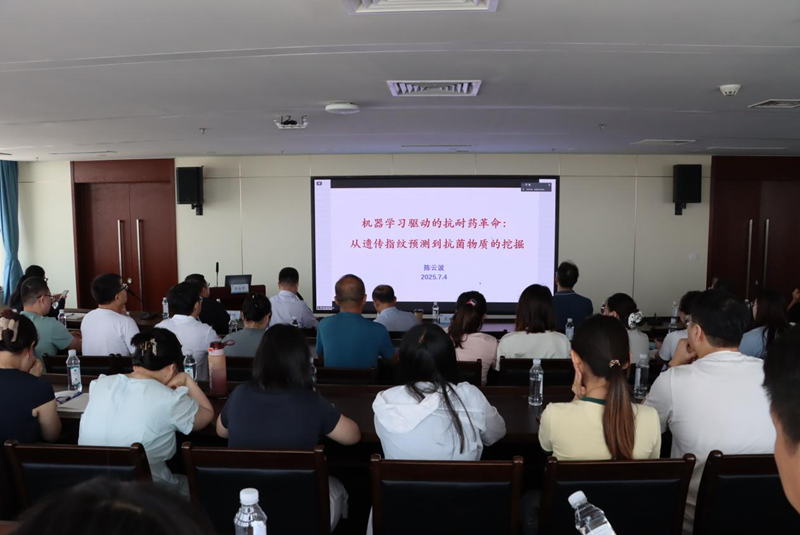
Dr. Wu Xiaogang delivered a report titled ‘Characterising Core Functional Groups of the Gut in Disease and Health,’ summarising existing authoritative literature, providing a detailed interpretation of the impact of stable interactive structures among gut bacteria on gut microbiota intervention, and showcasing the latest research progress of his research group in this field, offering new perspectives for gut health research.
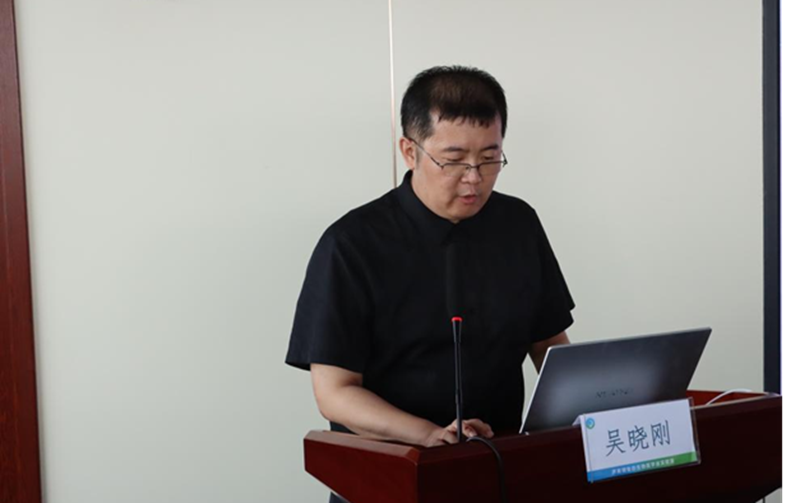
During the discussion session, participants engaged in in-depth exchanges and discussions on topics such as microecological regulation and the prevention and control of drug-resistant bacteria. Professors Wu Nanping and Xiao Yonghong provided strategic and forward-looking guidance on the main research directions and strategies in the field of microecology, offering valuable academic references for the attending researchers.
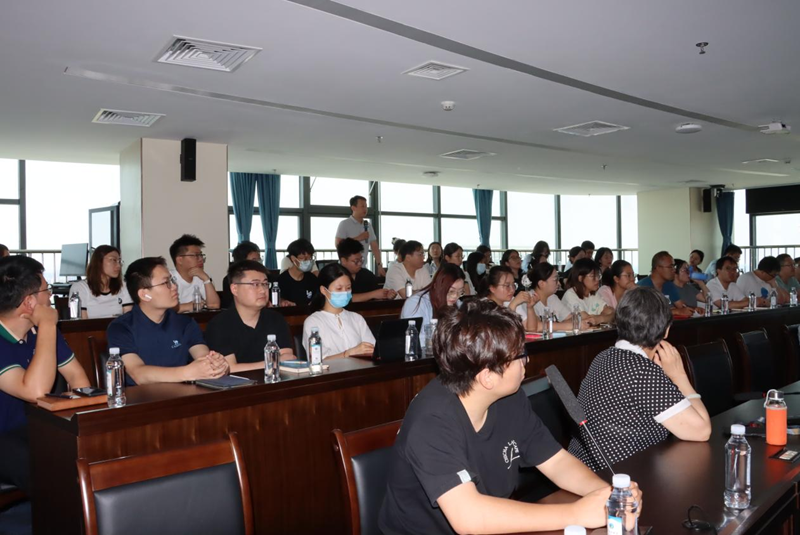
The successful hosting of this forum established a high-level academic exchange platform for microbiome research, offering experts and scholars valuable opportunities for knowledge sharing and intellectual exchange. The laboratory plans to regularly host a series of forum activities to further deepen academic exchange and cooperation both domestically and internationally, injecting sustained momentum into the innovative development of the microbiome biomedical field.



